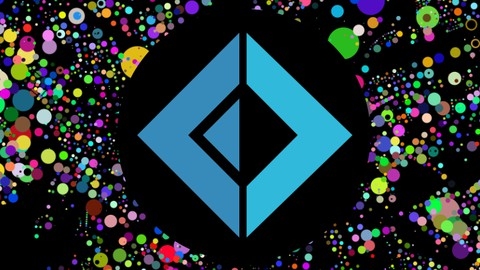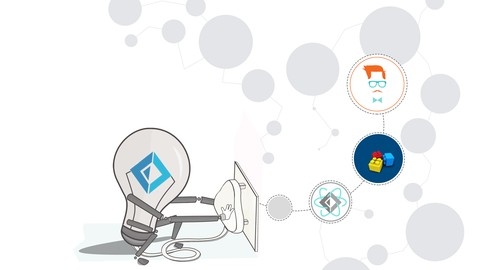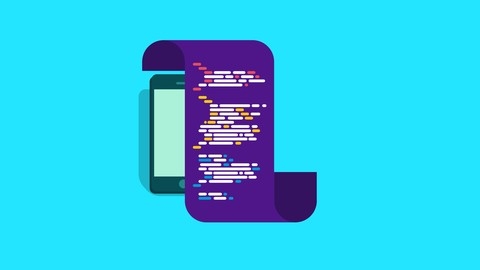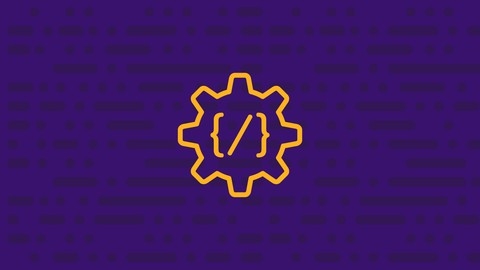If you’re looking for the best F# courses on Udemy, you’ve come to the right place.
F# is a powerful, open-source, cross-platform programming language that combines functional and object-oriented programming, making it a versatile choice for a wide range of applications.
In this blog post, we’ll explore the top F# courses on Udemy that can help you master this language and take your skills to the next level.
F# From the Ground Up
You will start by setting up your development environment, including installing an IDE like Visual Studio Code and useful extensions.
Once the setup is complete, you will dive into writing your first F# program and learn how to run and debug code.
The course covers essential programming concepts like control flow with if/else statements and loops, working with collections using functions, and organizing code into files and projects.
You will learn about F#’s powerful type system, including record types for defining data structures and discriminated unions for representing data with distinct cases.
Pattern matching, a core feature of F#, is covered in-depth to help you write concise and expressive code.
Error handling is an important aspect, and you will learn how to handle exceptions gracefully.
The course also introduces you to generics, which allow you to write reusable code that works with different data types.
Advanced collection functions, arrays, sequences, and F#’s built-in list type are explored, giving you a solid understanding of working with data in F#.
You will also learn about lookups using dictionaries and F# maps.
Finally, the course touches on object-oriented programming in F#, demonstrating how to define and use classes.
Throughout the course, you will gain hands-on experience with coding exercises and recaps to reinforce your learning.
Beta: F# in the Workplace
The course starts by introducing you to the concept of modeling a domain, which is a crucial aspect of software development.
You’ll begin by creating a deck of cards, learning how to add cards to the deck, and implementing the deal functionality.
As you progress, you’ll dive into testing the dealCard function, ensuring that your code works as expected.
You’ll then refactor the dealCard function, improving its design and readability.
Next, you’ll learn about shuffling the deck, exploring different algorithms and their implications.
The course covers dealing cards fairly, ensuring that the shuffling process is unbiased and random.
If you encounter any issues with your tests, the course will guide you through fixing them, helping you understand the importance of maintaining a robust testing suite.
You’ll also compare different shuffle algorithms, analyzing their performance and suitability for various scenarios.
This will give you a deeper understanding of algorithm analysis and optimization.
Finally, the course will teach you how to clean up your code, ensuring that it adheres to best practices and is maintainable in the long run.
Throughout the course, you’ll be working with real-world examples and practical exercises, allowing you to apply the concepts you’ve learned and solidify your understanding of F# and domain modeling.
Create your own Mini Web Server in F#
You’ll start with an introduction to MiniSuave, a lightweight web server library.
Then, you’ll learn how to implement basic HTTP response handlers like OK, internal error, and not found.
As you progress, you’ll dive into request filters, which allow you to modify incoming requests.
You’ll also learn how to add path filters to handle different routes.
If you encounter any broken parts, the course will guide you through fixing them.
One key aspect is adding response headers, which provide metadata about the response.
You’ll revisit the MiniSuave APIs to understand them better and learn about composing functions, a fundamental concept in functional programming.
The course will then teach you how to compose web parts, which are the building blocks of web applications.
You’ll learn about the choose combinator, which allows you to handle different cases based on conditions.
Throughout the course, you’ll explore the combinator pattern, a powerful technique for composing functions and web parts.
Hands-On F# Application Development
This course starts by covering the fundamentals of F# development, including setting up your environment in Visual Studio and Visual Studio Code, creating and building F# projects, and unit testing.
You’ll dive into domain modeling using immutable data types and F# collections, leveraging the power of functions as objects.
The course teaches you how to design behavior before data, making invalid states unrepresentable with techniques like units of measure and single-case unions.
It explores the concepts of pure and impure functions, using higher-order functions for dependency injection, reusing partial functions, and building complex behavior through function composition.
You’ll also learn how to implement behavior with state machines.
Moving on, the course covers data programming with F#.
You’ll process data using functions and collection APIs, create data streams with sequence expressions, and generate, merge, and group data streams using collection APIs.
It teaches you how to handle large documents and data streams, parse data with FParsec, and use F# asynchronous workflows.
You’ll learn to design and control asynchronous workflows, manage asynchronous input with F# agents, and process discontinuous input with Reactive Extensions.
The course also covers working with type providers for relational databases, web APIs, and Azure.
Throughout the course, you’ll have opportunities to test your knowledge, ensuring you grasp the concepts before moving forward.
Building F# Applications
You’ll start by setting up your development environment with Visual Studio and Visual Studio Code, ensuring you have the right tools for building, testing, and delivering F# solutions.
From there, you’ll dive into the key features of the F# language itself, exploring its powerful capabilities for domain modeling with immutable data types and collections.
You’ll learn how to leverage functions as first-class citizens, harnessing the computation power of collection APIs and interoperating seamlessly with object-oriented languages.
But the course goes beyond just language fundamentals.
It introduces a type-first approach to application design, teaching you how to design behavior before data, and how to make invalid states unrepresentable using techniques like units of measure and single-case unions.
You’ll also explore the world of pure and impure functions, learning how to use higher-order functions for dependency injection, reuse partial functions, and build complex behavior through function composition.
And for those interested in state management, the course covers implementing behavior with state machines, a powerful paradigm for modeling complex systems.
Throughout the journey, you’ll gain hands-on experience with unit testing in F#, ensuring your code is robust and maintainable.
Learning Functional Programming with F#
You’ll start by getting introduced to F# and setting up your development environment, followed by building your first “Hello World” application.
The course covers the differences between Visual Studio and Visual Studio Code, two popular IDEs for F# development.
From there, you’ll dive into the fundamentals of functional programming, exploring its principles and how it differs from procedural and object-oriented programming.
You’ll learn how functional programming is relevant in the 21st century and its advantages.
The course also covers object-oriented programming with F#, teaching you how to use classes, constructors, interfaces, and members.
You’ll learn how to interact with .NET and C#, as well as compare the differences between C# and F#.
Once you’ve grasped the basics, the course delves deeper into functional programming with F#.
You’ll learn about composition, partial application, immutability, and data structures like records, discriminated unions, and option types for handling null values.
As you progress, you’ll explore advanced functional programming concepts such as pattern matching, map and apply functions, bind operations, monads, and computation expressions.
The course also covers async workflows and mailbox processors, which are essential for building concurrent and asynchronous applications in F#.
With mailbox processors, you’ll learn what they are, why they’re needed, and how to build a producer-consumer queue using them.
You’ll also learn about the Post, Scan, and PostAndReply operations.
End-to-End Real-World Application Development with F#
This course covers front-end F# development using modern tools and frameworks.
You’ll start with an overview of the course and learn about build automation with Fake.
Then, you’ll dive into Fable, a compiler that allows you to write F# code that can run in the browser.
Next, you’ll build an example application to get hands-on experience.
After that, you’ll learn about the SAFE Stack, a technology stack for building full-stack F# web applications.
The course covers Elmish, a framework for building user interfaces using an Elm-like architecture, in two parts.
You’ll also learn about Giraffe, a functional ASP.NET Core web framework, and how to use it for server-side development in two parts.
Finally, you’ll get an overview of the SAFE Stack template, including understanding its parameters, creating a new SAFE project, and an introduction to Saturn, a web development framework.
F# From Scratch: Learn The Basics
The course starts with an introduction to F#, a functional-first programming language.
You’ll learn the core concepts that make F# unique and powerful, like its functional nature and how that differs from object-oriented languages like Java.
Right from the beginning, you’ll dive into the F# language itself.
The course covers variables, syntax, and other basics to get you writing F# code quickly.
You’ll appreciate how convenient and expressive the language is for many programming tasks.
As you progress, the course explores more advanced F# topics to deepen your understanding.
You’ll develop the functional programming mindset that makes F# so interesting and relevant today.
Hands-on examples motivate the concepts and show how they translate into useful, real-world code.
The syllabus highlights important information you’ll want to remember from each section.
You’ll be ready to apply these skills to start building applications in F#.








